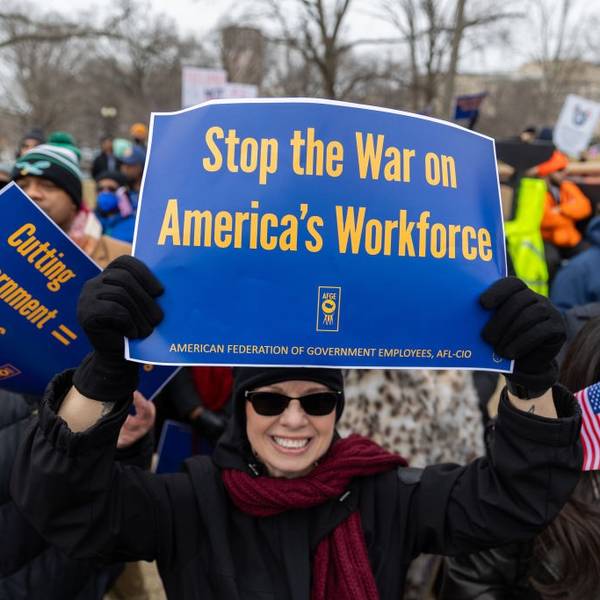Ex-presidents' lives offer a retrospective lesson in contrasts. Since World War II, Democrats have usually distinguished themselves as public servants. Republicans have distinguished themselves -- when they have distinguished themselves at all -- as servants of their shareholders or of themselves, or as amiable irrelevancies. The contrast goes to the heart of the philosophy of the two parties. So why is it, like ex-presidents, equally ignored?
Start with the Democrats. Harry Truman left office one of the most unpopular presidents in the nation's history and died almost 20 years later one of its most popular ones. He never set out to fix his image. History's judgments did it for him, although one precedent stands out: Despite being almost penniless when he left office (he moved into his mother-in-law's house, if that tells you anything), he turned down corporate and commercial offers in droves in order not to taint the integrity of the presidency, a custom only selectively followed by his successors.
John Kennedy never had a chance to be an ex, and Lyndon Johnson barely did. He died of his third heart attack four years after leaving office, destroyed by his smoking habit and the anxieties of the Vietnam War. Unlike one notable successor who unleashed a losing war without as yet admitting the slightest error, Johnson had been all regrets about escalating Vietnam going back to 1964: "I don't think it's worth fighting for, and I don't think we can get out," he said at the time. He feared impeachment if he did get out. So he stayed until he impeached himself. His regret too briefly informed subsequent presidents' caution regarding military entanglements.
Jimmy Carter's post-presidency has done more for democracy, fair elections and conflict resolution across the world than the current president has managed in a single voting precinct, Iraqi or American, if we include the shams that paperless and riggable voting machines or discriminatory voter registration laws are making of our own system. And Bill Clinton? A man who can raise $7 billion for anti-poverty programs was bound to be ambushed by Fox News, which invited him to talk about the $7 billion and attempted to blame him for Sept. 11 instead. (Clinton's fundraising success couldn't go unpunished by the Republican ministry of information, as it made the Politburo's current leader look dimmer than he naturally does.)
On to Republican exes. Dwight Eisenhower is an odd case. His eight years in office were an ex-presidency all along. He was a competent, ceremonial, nonpartisan caretaker, glad to let Franklin Roosevelt's legacy and Ike's golf schedule drive most of his policies. ("President Holds Cabinet Session; Practices Golf," was an actual Page 1 New York Times headline Dec. 3, 1957). Naturally, the greatest personal achievement in his eight years after the White House was his hole in one, Feb. 6, 1968, an occasion sadly overshadowed by the Tet Offensive raging at the time.
Next in line was Richard Nixon, who devoted his entire earthly afterlife, 20 scribbling years, to rehabilitating hiscrooked-up image. His eight books are thick with cosmetic tonnage that makes Tammy Faye Bakker look dignified in comparison. But it worked, at least for the duration of Nixon's funeral. Plus, he can thank the second Bush for relieving him of being the most criminal president ever. Gerald Ford is supposed to fit in here somewhere, and rumor has it he's still alive. But his years as an ex, like his brief stint as president, are best left pardoned off this recap. Ronald Reagan made $2 million for two speeches on behalf of a Japanese company soon after leaving Washington, but he was already a victim of Alzheimer's probably before he left office: He was mostly robbed of an Eisenhower-like retirement.
Which brings us to the once-and-future Bush post-presidencies. The first Bush has been all business since he left office, quietly amassing millions from business ventures, most notably from service, until 2003, with the Carlyle Group, the investment and gun-running firm soaked in Saudi and Kuwaiti money. Bush II served on Carlyle's board too, in the early 1990s. It's difficult to imagine him joining Clinton or Carter in their save-the-world enterprises, once he's done. His Carlyle seat is probably being kept warm for him.
The difference between presidents out for themselves or their profiteering friends and presidents out for true service beyond themselves is remarkably clear even when they're in office. Still, it would be helpful if presidential candidates were made to tell on the campaign trail what they plan to do with themselves once they're done. It could save us the trouble of finding out, even if half of them would plead the Fifth. No need to guess which half.



